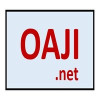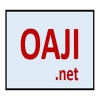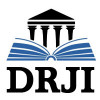Research Article
Aim & Scope
The IJCER (International Journal of Contemporary Educational Research) aims to disseminate knowledge on educational sciences through on the issues determined within the scope of the journal. These topics are:
• Adult-Career, and Vocational Education,
• Assessment and Evaluation,
• Counseling and Student Services,
• Disabilities and Gifted Education,
• Educational Management,
• Elementary and Early Childhood Education,
• Higher Education,
• Reading, English, and Communication Educational ,
• Rural Education and Small Schools,
• Science, Mathematics, and Environmental Education,
• Social Studies and Social Science Education
• Teaching and Teacher Education,
• Urban Education
The IJCER (International Journal of Contemporary Educational Research) welcomes any papers on educational sciences. The articles should be original, unpublished, and not in consideration for publication elsewhere at the time of submission to the International Journal of Contemporary Educational Research (IJCER) and during the review process.
The IJCER is a refereed journal and has a double-blind review Any manuscript submitted for consideration in publication in the IJCER is reviewed by at least two international reviewers with expertise in the relevant subject area. No submission fee is required for manuscripts. The IJCER is a non-profit journal and publication is completely free of charge.
Author Guidelines
Note: Please read the explanations in the Submission Guidelines tab and upload the article. Please DO NOT write PERSONAL INFORMATION in the template file while uploading the article.
- Please fill in the template and upload the during submission. Click for template
- Please fill in the copy right transfer agreement and upload the document during submission. Click for copy right transfer agreement.
- Personal information should not be written in the manuscript file.
- Please provide a 'Title Page' including your personal information such as author names and affiliations, and upload both files in the submission.
The IJCER (International Journal of Contemporary Educational Research) welcomes any papers on educational sciences: especially teaching and teacher education, educational management, counseling and student services, rural education and small schools, elementary and early childhood education, higher education, adult-career, and vocational education, assessment and evaluation, science, reading, english, and communication educational , disabilities and gifted education, mathematics, and environmental education, social studies and social science education and urban education articles. The IJCER is a refereed journal and has a double-blind review. Any manuscript submitted for consideration in publication in the IJCER is reviewed by at least two international reviewers with expertise in the relevant subject area. No submission fee is required for manuscripts. The IJCER is a non-profit journal and publication is completely free of charge. The publication language of the journal is English. Papers must suitable with grammatical rules. For this reason, after all the evaluation processes are completed, the papers should be proofreading. Proofreading is required for all articles to be published in the journal. A paper without proofreading will not be accepted for publication.
IJCER will be more selective in giving further consideration for submissions. Authors must submit an ethics committee approval document for articles published in IJCER (only for necessary papers).The ethics document should including the name of the relevant institution, the date of the document, and the decision-number information of the document. If your study is a paper that does not require an ethics committee document, please indicate this situation. An ethics committee document is not needed for articles produced from theses. Click to access the template file
The articles should be original, unpublished, and not in consideration for publication elsewhere at the time of submission to the International Journal of Contemporary Educational Research (IJCER) and during the review process. IJCER will be more selective in giving further consideration for submissions. We decided to lessen the number of articles published to ensure a more rigorous review procedure. Accordingly, the below studies will not be accepted for review process:
- Studies that offer a descriptive review of literature,
- Descriptive studies based on opinions of stakeholders,
- Basic metaphor studies,
- Descriptive quantitative studies using a single instrument and reporting differences in terms of some variables,
- Correlational studies on a field that has been researched to a great extent,
- Studies that are not directly related to educational sciences,
- Qualitative studies that depend too much on positivist paradigm, i.e. quantifying the findings without exerting a through qualitative analysis
- Studies that are too local, that do not depend on international literature, and that are not related to international readers.
The studies listed above may be rejected during the first consideration of the manuscript. An author cannot publish in IJCER until 4 issues have been published following his/her publication. This is valid for both individual articles and shared authorship.
Zero-tolerance to Plagiarism
IJCER has a zero-tolerance plagiarism policy. We check the submissions by using two methods: Plagiarism prevention tools and reviewer checks. All submissions will be checked by iThenticate plagiarism prevention software before being sent to reviewers
Text Formatting
-The manuscript should be submitted in Word. Personal information should not be written in the manuscript file. Please fill in the template and upload the during submission. Click for template. Personal information should not be written in the manuscript file.
- Please provide a 'Title Page' including your personal information such as author names and affiliations, and upload both files in the submission.
- Please fill in the template and upload the document during submission.
- Please fill in the copy right transfer agreement and upload the document during submission.
Please Check Rules below before submission,
Language
Papers are accepted only in English.
Word count:
For submission, it is recommended that your article is within 5000-8000 words (exclude title, author names, affiliations, abstract, keywords, main body, references, appendices).
Page Setup•Please use margins of 2.5 cm (1 inch).
•Please use A-4 page size.
•Please use font style as Times New Roman.
Title Page•Please use 14-point bold for your article title, with an initial capital letter for any proper nouns. Please margin the article title to the center.
•All the authors of a paper should include their full names, affiliations, postal addresses, telephone and fax numbers and email addresses on the title page of the manuscript. One author should be identified as the Corresponding Author. Please use one line for all author names and one line for all author information.
•An informative 10-point bold abstract (100 to 200 words) presenting the main points of the paper and conclusions.
•Please include descriptive keywords (4 to 5). Separate keywords with a comma. Capitalize the first letter of each keyword (e.g., Science education, Survey development).
Main Text
•Please use 10-point font size.
•Please margin the text to the justified.
•Manuscripts should be single spaced.
•Footnotes and endnotes are not accepted. All relevant information should be included in main text.
•Do not indent paragraphs; leave a space of one line between consecutive paragraphs.
•Do not underline words for emphasis. Use italics instead.
•Both numbered lists and bulleted lists can be used if necessary.
•Before submitting your manuscript, please ensure that every in-text citation has a corresponding reference in the reference list. Conversely, ensure that every entry in the reference list has a corresponding in-text citation.
Headings
•Subdivide text into unnumbered sections, using short, meaningful sub-headings. Please do not use numbered headings.
•Please limit heading use to three levels.
•Please use 12-point bold for first-level headings, 10-point bold for second-level headings, and 10-point italics for third -level headings with an initial capital letter for any proper nouns.
•Leave one blank line after each heading and two blank lines before each heading. (Exception: leave one line between consecutive headings.)
•Please margin all headings to the left.
Tables and Figures
•Please embed tables and figures in appropriate areas within the document and center them horizontally. Tables and figures should not exceed the given page margins.
•Provide captions (maximum length: 6 to 8 words) for each table or figure. Centre the caption above the table and below the figure. Please reference the table or figure in the text.
•Please do not use vertical lines in tables.
•For figures, GIF and JPEG (JPG) are the preferred formats.
Acknowledgements or Notes
Please collate acknowledgements or notes in a separate section at the end of the article before the references.
References
•At the end of the article, please list all references in alphabetical order (based on authors’ last names) at the end of the article.
•Please use the level-one heading, “References.”
•Follow the citation procedures of the American Psychological Association (APA 7).
Examples of APA style:
Do not number in-text citations. Provide the last name(s) of the author(s) and the date of publication in parentheses. If the author’s name appears within the sentence, then provide only the date of publication in parentheses.
Examples:
Citation
According to Jones (1998), APA style is a difficult citation format for first-time learners.
APA style is a difficult citation format for first-time learners (Jones, 1998).
Journal article
Harlow, H. F. (1983). Fundamentals for preparing psychology journal articles. Journal of Comparative and Physiological Psychology, 55, 893-896.
Scruton, R. (1996). The eclipse of listening. The New Criterion, 15(30), 5-13.
Article in a Magazine
Henry, W. A., III. (1990, April 9). Making the grade in today's schools. Time, 135, 28-31.
Newspaper article
Schultz, S. (2005, December 28). Calls made to strengthen state energy policies. The Country Today, pp. 1A, 2A.
Book, authored
Calfee, R. C., & Valencia, R. R. (1991). APA guide to preparing manuscripts for journal publication. American Psychological Association.
Book, edited
Duncan, G. J., & Brooks-Gunn, J. (Eds.). (1997). Consequences of growing up poor. Russell Sage Foundation.
Edited Book with an Author or Authors
Plath, S. (2000). The unabridged journals. K. V. Kukil (Ed.). Anchor.
Edition Other Than the First
Helfer, M. E., Kempe, R. S., & Krugman, R. D. (1997). The battered child (5th ed.). University of Chicago Press.
Article or Chapter in an Edited Book
O'Neil, J. M., & Egan, J. (1992). Men's and women's gender role journeys: A metaphor for healing, transition, and transformation. In B. R. Wainrib (Ed.), Gender issues across the life cycle (pp. 107-123). NY: Springer.
Dissertation, Published
Lastname, F. N. (Year). Title of dissertation. (Doctoral dissertation). Retrieved from Name of database. (Accession or Order Number)
Dissertation, Unpublished
Lastname, F. N. (Year). Title of dissertation. (Unpublished doctoral dissertation). Name of Institution, Location.
Conference Proceedings
Schnase, J. L., & Cunnius, E. L. (Eds.). (1995). Proceedings from CSCL '95: The First International Conference on Computer Support for Collaborative Learning. Erlbaum.
Internet reference
Angeli, E., Wagner, J., Lawrick, E., Moore, K., Anderson, M., Soderland, L., & Brizee, A. (2010, May 5). General format. Retrieved from http://owl.english.purdue.edu/owl/resource/560/01/
...
Ethical Principles and Publication Policy
Authors must submit an ethics committee approval document for articles published in IJCER (only for necessary papers). The ethics document should including the name of the relevant institution, the date of the document, and the decision-number information of the document. If your study is a paper that does not require an ethics committee document, please indicate this situation. An ethics committee document is not needed for articles produced from theses. Please see the submission guidelines for more information.International Journal of Contemporary Educational Research (IJCER) adopts the The Council of Higher Education (Turkey)- Instructions for Scientific Research and Publication Ethics guidelines.
Authors of IJCER must confirm the following:
Submitted manuscripts must be the original work of the author(s)
Only unpublished manuscripts should be submitted
It is un ethical to submit a manuscript to more than one journal concurrently
Any conflict of interest must be clearly stated
Acknowledge the sources of data used in the development of the manuscript
All errors discovered in the manuscript after submission must be swiftly communicated to the Editor.
Reviewers of IJCER must confirm the following:
That all manuscripts are reviewed in fairness based on the intellectual content of the paper regardless of gender, race, ethnicity, religion, citizenry or political values of author(s)
That they will be objective and constructive in their reviews, refraining from being hostile or inflammatory and from making libelous or derogatory personal comments
That they will review manuscripts for which they have the subject expertise required to carry out a proper assessment and which they can assess in a timely manner
That any observed conflict of interest during the review process must be communicated to the Editor
That all information pertaining to the manuscript is kept confidential
That they will not use information obtained during the peer-review process for their own or any other person’s or organization’s advantage, or to disadvantage or discredit others
That any information that may be the reason for the rejection of publication of a manuscript must be communicated to the Editor
Editors of IJCER must confirm the following:
That all manuscripts are evaluated in fairness based on the intellectual content of the paper regardless of gender, race, ethnicity, religion, citizenry or political values of authors
That information pertaining manuscripts are kept confidential
That any observed conflict of interest pertaining manuscripts must be disclosed
The Editorial Board takes responsibility for making publication decisions for submitted manuscripts based on the reviewer’s evaluation of the manuscript, policies of the journal editorial board and legal restrain acting against plagiarism, libel and copyright infringement.
Plagiarism Policy
During review process we use iThenticate plagiarism software. The authors should scan with iThenticate plagiarism or other plagiarism software of their manuscripts before submitting.
Review process cannot begin in case of failure or missing any of the requirements mentioned in this journal such as detailed biostatement by author or any kind of typing mistake in the submission form, etc. The journal staffs never check the submitted data and notify back the author.
The submitter must provide and maintain all requirements during the evaluation process. If submitting to a peer-reviewed section of the journal, the instructions in Ensuring a Blind Review have been followed. Author commits all conditions by sending the manuscript.
Open Access Policy
International Journal of Contemporary Educational Research (IJCER) is a fully open access journal, which means that abstracts and full texts of all articles published in this journal are freely accessible to everyone immediately after publication, without any form of restriction and requiring a subscription to the journal.
The manuscripts that are published in the IJCER are distributed under CC BY license. Users can distribute, remix, tweak, and build upon our articles, even commercially, as long as they are cited for the original creation
IJCER provides immediate open access to its content on the principle that making research freely available to the public supports a greater global exchange of knowledge. Access to the articles published in IJCER is free and unlimited. IJCER utilizes the LOCKSS system to create a distributed archiving system among participating libraries and permits those libraries to create permanent archives of the journal for purposes of preservation and restoration.
Articles are licensed under a Creative Commons Attribution-NonCommercial-NoDerivatives 4.0 International License.
Price Policy
No submission fee is required for manuscripts. IJCER is a non-profit journal and publication is completely free. No publication fee is charged for articles sent to IJCER.
Indexes
Citation Indexes
Other Indexes
Journal Boards
Bu eser Creative Commons Atıf-GayriTicari-Türetilemez 4.0 Uluslararası Lisansı ile lisanslanmıştır.
IJCER (International Journal of Contemporary Educational Research) ISSN: 2148-3868


















